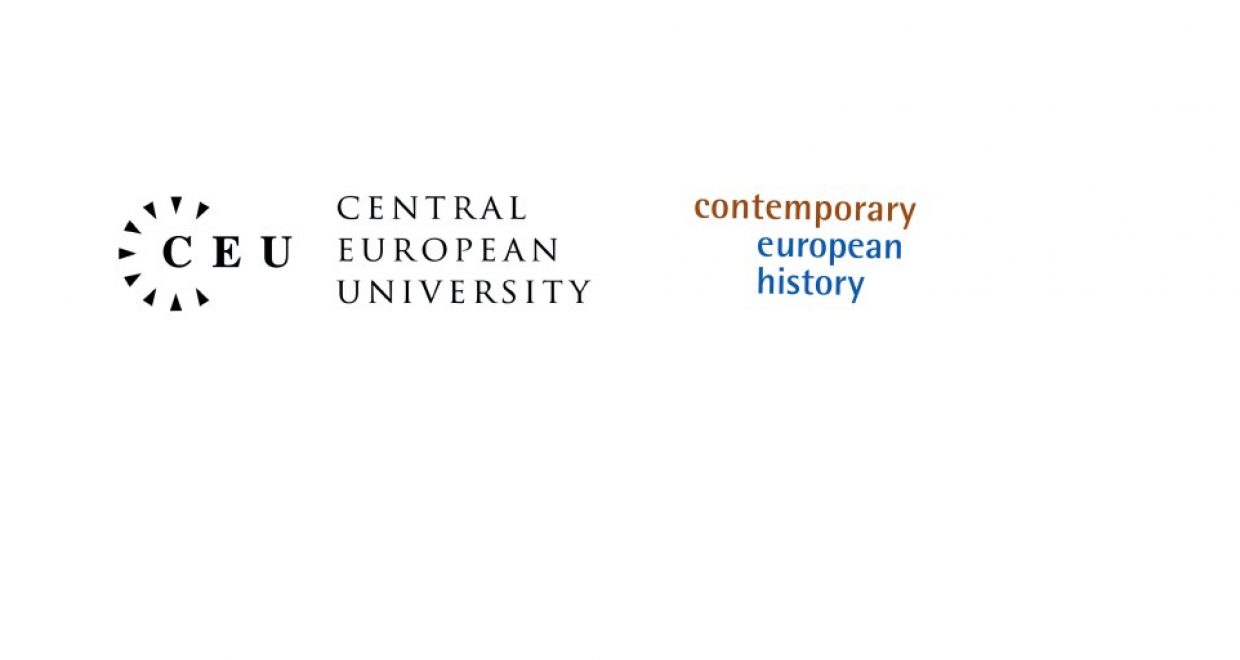Mutual Tolerance, Vivid Intellectual Intercourse, and Accountable Decision Making: The Mission of the Central European University
Part 3 from the introduction to the virtual special issue from Contemporary European History.
We are accustomed to viewing 1989 as the end of state socialism. Although we may accept that what came after was the beginning of something new, we don’t quite know what it is. We call it a transition – to democracy, to a market economy; or a return, to the nation, to Europe, to the ‘free world’. In all of this there was mimicry or assimilation, so part of the problem is finding something after 1989 that doesn’t look a lot like what existed elsewhere or earlier. Nationalism, that great particularism which asserts its uniqueness most vociferously, is perhaps the most unoriginal outcome of 1989. And if the European Union was new to East-Central and Southeastern Europe and has itself been shaped by its expansion into the region, it was not the brainchild or work of the region.
But some newness did emerge after 1989. Unprecedented freedom of movement and speech, for one. At the level of institutions, the Central European University (CEU), founded in 1991, was also without precedent, especially with its very particular regional commitment. Its founder and sponsor, George Soros, was from Hungary, but the CEU was to be a university with a truly Central-Eastern European scope, originally established to bring the young, intelligent and experience-hungry from across the region together to think about history, politics and nationalism – matters on the mind of a generation that would shape the post-communist order. The idea was to educate these young people in the spirit of the Austro-British philosopher Karl Popper. The university was to be imbued with the idea of mutual tolerance, vivid intellectual intercourse and accountable decision making. Following a year or two of commonly shared experience, the young people would go home and help extirpate the remnants of a closed society, authoritarianism and prejudice. Later the CEU’s admissions scope expanded to accommodate more young people from the former Soviet Union, as well as students from Western Europe and the United States.
All of this unfolded against the backdrop of the wars of Yugoslav succession. Yet instead of enforced isolation, CEU brought all ‘sides’ literally to the same table, both for lunch and for classes. If you shut your eyes and listened to the languages spoken in the university’s cafeteria, you would have to acknowledge that you were somewhere no one had ever been before. This was no café in fin-de-siècle Vienna, where the bourgeois fantasies of generations of regional intellectuals were morphing from liberal revolution to national independence.
Here were, and still are, children and grandchildren of socialism, of workers and elites, alongside the children of dissidents and of the in-between majority of people whose experience of socialism was mixed, and whose experience of post-socialism is still in a state of precarious becoming. Some reacted to this period of possibility and uncertainty by opening up, others by doubling down, but they did so in conversation with one another, at least for a time. And there was no refuge from seeing the period and the broader region light up in all its contradictory colours.
That was new. And the spirit of the place was and is one of questioning – each other’s premises, conclusions and modes of thought, as well as the very endeavour in which they were engaged and the role of the university in society. The CEU has always had a fraught relationship with Hungary, even when it was not at odds with the government. Was it part of a Hungarian intellectual community? Or was it a thing apart and aloof? Could it take Hungarian academic concerns as its own, or would it insist on operating on a different plane? The questions were not just coming from the government, but from within the university and from other universities in Hungary, whose funding was being cut at the state level and whose international exposure was much more precarious and episodic than the CEU’s.
Then came ‘Lex CEU’, the Orbán government’s attempt to drive the university out of Hungary. In the first days of April 2017 the Hungarian parliament passed a law that made the CEU’s continued legal operation in Hungary impossible. Many articles and op-eds were written by academics, politicians, former and current students and others condemning the law, and declarations of support poured in from scores of universities and scholarly organisations in Europe and the United States. Demonstrations and solidarity events took place in Budapest, New York, London, Lisbon, Friedrichshafen, St. Petersburg, Warsaw, Saarbrücken, Amsterdam, Barcelona, Paris, Bucharest, Mainz, Vienna, Berlin, Cluj, Stockholm, Heidelberg, Zagreb and Prague, to name a few. Members of the European Parliament, as well as US and European diplomats and statesmen criticised the law. But the governing party in Hungary remained unmoved and only recently, after months of attempts to negotiate for provisions to allow the university to continue its operations, agreed to a one-year extension to the law’s requirement that the CEU find a partner institution in the United States.
Recently an advanced PhD student said that the worst aspect of the Orbán government’s attempt to drive the CEU out of the country was that it put a stop to important discussions regarding the place of the CEU in the Hungarian academic community by creating a crisis that forced people into an all-or-nothing position. But out of that crisis came an unexpected surprise: not only university and college presidents from around the world but also – and more importantly – the leadership at the major Hungarian universities and Hungarian student unions lined up behind the CEU. This fact is often buried under the rubble of a drama that the Hungarian government wishes to cast as Hungary and Christianity vs. Soros and godless cosmopolitanism, a revival of the comfortable anti-Semitism with which Hungarian politics has long been familiar. On this matter the Hungarian universities made their voices heard: this was not about national Hungary versus the liberal outside world but a matter of academic freedom. The threats to academic freedom unleashed with ‘Lex CEU’ had implications for all academic endeavours everywhere, but especially in Hungary.
The matter is not solved, however. A re-thinking of the place and role of the Central European University will have to come. To some extent, its vision has been successful, but its very success seems to threaten the university’s original purpose. In giving students the freedom to choose their own course, it has had to watch as many of them work to close down the range of options open to the youth of today. Let us not forget that Viktor Orbán studied at Oxford as a Soros fellow. What will be the function and purpose of this university whose survival in Budapest may sooner or later require some concessions to an increasingly ‘illiberal’ world? There are indeed profound questions that the faculty, students and the CEU’s innumerable friends have confronted and will continue to confront in the months and years to come.
However, given the new precedent that the university has set for regional exchange, this is a confrontation in which Hungary and Central-Eastern Europe more generally has a considerable stake. As a university of the region, the CEU has made a fact of the dream that its brightest have something to talk about: among themselves, with those who live around their dorms and classrooms, with other Europeans and with the world. May it ever remain so.
Read the virtual special issue for free during 2018
Read the full introduction to the virtual special issue
Authors: Professor Holly Case, Cornell University and Professor Istvan Deak, Columbia University





